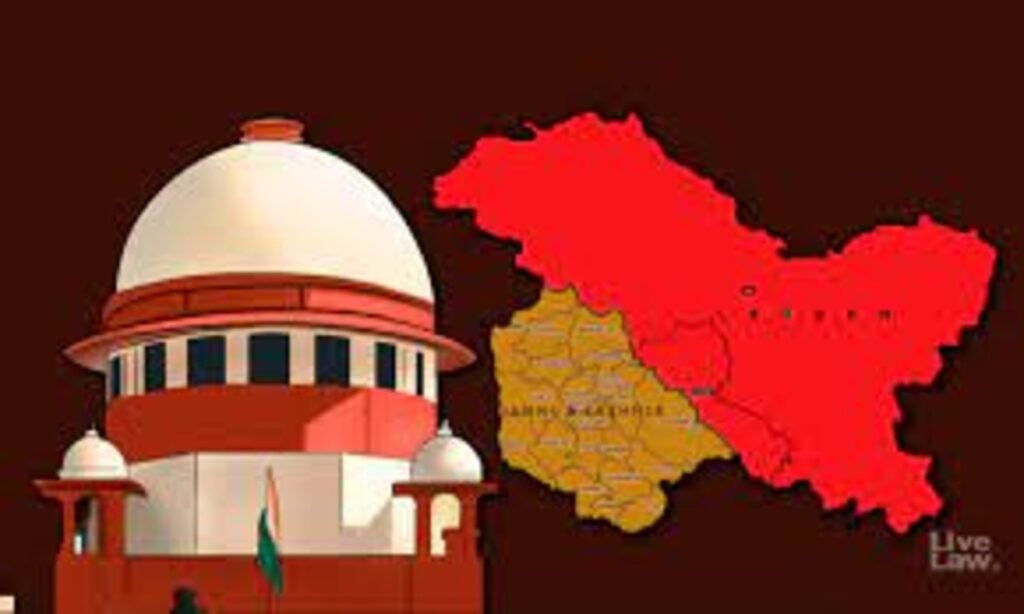August 31, 2023
Introduction
In an ongoing legal battle, the Supreme Court of India heard petitions challenging the abrogation of Article 370 for the twelfth consecutive day. During the proceedings, the apex court observed that the reorganization of Jammu and Kashmir was not an isolated incident, pointing out comparable cases in other Indian states. The hearing saw Solicitor General Tushar Mehta representing the government, defending the unique circumstances surrounding the reorganization.

The five-judge bench, consisting of Chief Justice of India DY Chandrachud, Justices Sanjay Kishan Kaul, Sanjiv Khanna, BR Gavai, and Surya Kant, noted that the case of Jammu and Kashmir’s bifurcation was not unprecedented. Solicitor General Mehta emphasized the strategic significance of the region due to its history of terrorism, infiltration, and external influences from neighboring countries. He argued that these factors necessitated specific considerations in the reorganization process.
Justice Kaul, however, countered this argument by citing instances in other Indian states that share borders with neighboring countries. He pointed out that states like Punjab and the North East have faced similar challenges and reorganizations in the past. This brought into question the assertion that Jammu and Kashmir’s situation was truly unique.
The court also explored the need for a blueprint to ensure the power of reorganization. So that it would not be misused in the future. Solicitor General Mehta highlighted the complexities of Jammu and Kashmir’s history and ongoing challenges, such as stone pelting, strikes, deaths, and terror attacks. He underlined the efforts to integrate the region into the mainstream, including democratic local self-governance and youth empowerment.
CJI Provides Clarification
In response, Chief Justice Chandrachud sought clarification on the assertion that Jammu and Kashmir’s situation was one of a kind. The Chief Justice emphasized the need for fairness and consistency in treating various border states. Solicitor General Mehta acknowledged the complexities but maintained that the specific circumstances of Jammu and Kashmir justified its unique treatment.
During the proceedings, the Indian government also informed the Supreme Court that the ‘Union territory’ status of Jammu and Kashmir was not intended to be permanent. The court expressed interest in a roadmap to restore electoral democracy in the region, indicating the judiciary’s focus on ensuring the return to normalcy and democratic governance.
Conclusion
As the hearings continues the Supreme Court’s deliberations on the Article 370 case are closely being watched. By all legal experts, policymakers, and the public alike.
The court’s eventual ruling is expected to have far-reaching implications for the future of Jammu and Kashmir. It can also potentially influence the treatment of other Indian states in similar situations.



